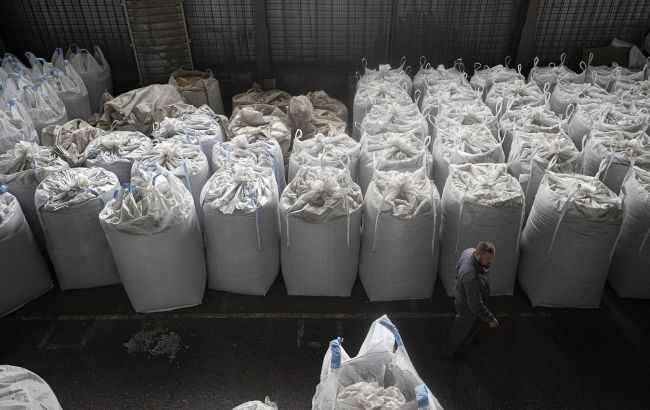El Niño-caused record drought burns down African corn, UN seeks import from Ukraine
 Photo: Heat wave has reduced harvests in Africa (Getty Images)
Photo: Heat wave has reduced harvests in Africa (Getty Images)
South African countries will need to import at least 3 million tons of corn, particularly from Ukraine, in the coming months. They are struggling with the effects of a record drought caused by the El Niño climate phenomenon, reports Bloomberg.
Farmers from Angola, Zambia, Mozambique faced the worst drought in a century during the growing season earlier this year. It destroyed huge areas of staple corn crop, or maize as it is known locally.
Fews Net, an early warning system for famine, has reported that more than 30 million people affected by the El Niño drought will need humanitarian assistance by March.
The peak regional food aid needs will be about 25% higher than in the previous severe drought caused by the phenomenon in 2016-17, the organization, funded by the US Agency for International Development, said.
“While several countries are in the process of securing contracts to import maize from international markets, particularly in South America, constrained regional market supply is driving inflated maize prices. In Malawi and Zimbabwe, for example, maize grain prices are already around 130% to 150% above average for this time of year.” the organization said.
The UN World Food Program is looking for 290 thousand tons of corn from such remote regions as Mexico and Ukraine as part of the largest drought response in South Africa.
Record drought
The drought, which in some countries has become the worst in 40 years, has been exacerbated by climate change, said UN assistant secretary-general of the United Nations Reena Ghelani.
"This region has seen drought once every decade or longer, we are seeing more droughts because of the climate situation and some scientists say we are going to see more frequent droughts,” said Ghelani, who is also the UN's climate crisis coordinator for the El Niño/La Niña response.
In May, the 16-nation Southern African Development Community launched a $5.5 billion appeal for humanitarian aid.
El Niño effect
El Niño is a climate phenomenon that occurs in the Pacific Ocean. It is characterized by abnormally warm water surface temperatures in the equatorial part of the sea, usually in spring or summer. This phenomenon greatly affects the weather and climate in different regions of the world.
El Niño usually causes an increase in air temperature in many regions and changes in the wind pattern.
According to the United Nations World Meteorological Organization (WMO), the global average surface temperature in 2023 was about 1.45 degrees above the average for 1850-1900. 2023 was the warmest year on record in 174 years of observations. The record of the previous warmest years was broken: 2016, with a temperature 1.29 degrees above the 1850-1900 average, and 2020, with an excess of 1.27 degrees.
According to the WMO, the transition from La Niña to El Niño conditions in mid-2023 contributed to the rapid rise in temperatures from 2022 to 2023.

